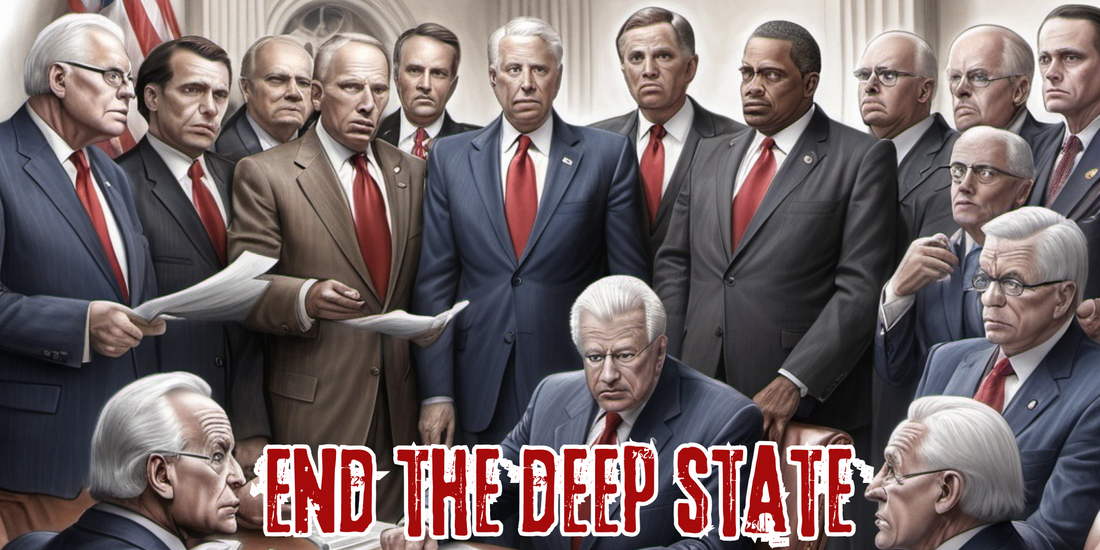The relationship between a government and its citizens is built on trust. However, history has shown numerous instances where the US government has engaged in activities that not only breached this trust but also raised ethical and moral questions. This blog post delves into several cases of governmental deception that had been labeled as "conspiracy theories", in some cases, for decades: MK-Ultra, the handling of UFO information, and the Tuskegee Study, Operaion Mockingbird, Operaion Northwoods, The Gulf of Tonkin Incident, ABSCAM, The Iran-Contra Affair. These examples highlight how secrecy, unethical practices, and misinformation have been used, affecting public trust and the fabric of American democracy, and make you wonder why we should believe anything the current administration is telling us.
1. MK-Ultra: The Mind Control Experiment
Overview: MK-Ultra was a covert CIA program that began in the early 1950s and continued for over a decade. The program aimed to explore mind control and interrogation techniques through the use of drugs, psychological torture, and other forms of manipulation.
Deception: The public was largely unaware of these experiments until 1975 when investigations by the Church Committee and the Rockefeller Commission brought MK-Ultra to light. Participants, often unwitting American citizens, were subjected to experiments without consent. This not only violated human rights but also broke the trust between citizens and their government.
Impact: The revelation of MK-Ultra led to widespread outrage and a reevaluation of CIA oversight. It highlighted the ethical boundaries crossed in the name of national security, showing how easily privacy and human rights could be sacrificed for perceived security gains.
2. UFOs and Government Disclosure
Overview: The topic of UFOs (Unidentified Flying Objects) or UAPs (Unidentified Aerial Phenomena) has been a contentious issue, often dismissed or ridiculed publicly by government officials, while internally, there's been considerable interest and investigation, including projects like Project Blue Book.
Deception: The government's handling of UFO information has oscillated between denial and limited admission. While there have been declassified documents and recent acknowledgments from various agencies about investigating these phenomena, the full extent of what is known remains undisclosed. This has led to a culture of conspiracy theories and distrust.
Impact: The government's inconsistency and secrecy around UFOs have fueled public skepticism about transparency. The recent shift towards more open discussions, like the formation of the UAP Task Force, indicates a change, but the legacy of misinformation continues to affect public perception.
3. Tuskegee Study of Untreated Syphilis
Overview: From 1932 to 1972, the Tuskegee Study involved African American men who were deliberately left untreated for syphilis, even after penicillin became the standard treatment, to study the disease's progression.
Deception: Participants were not informed of their diagnosis, nor were they given adequate treatment. The study was shrouded in secrecy, and the men were misled about the true nature of their participation.
Impact: The Tuskegee Study is one of the most infamous cases of medical ethics violations. It led to widespread distrust in medical research among African Americans and catalyzed reforms in medical ethics and human subject research, including the establishment of the National Research Act and the IRB (Institutional Review Board) system.
4. Operation Mockingbird
Overview: Initiated by the CIA in the early 1950s, this operation aimed to influence foreign and domestic media by planting stories, controlling narratives, and employing or influencing journalists.
Deception: The public was not aware that much of the news they consumed might have been influenced or directly controlled by the CIA. This operation involved crafting narratives to support U.S. foreign policy, often without disclosing the source or true nature of the information.
Impact: The revelation of Operation Mockingbird led to questions about media integrity and the extent of government control over information dissemination. It contributed to a lasting distrust in media, with implications for how news is perceived even today.**Conclusion**
5. Operation Northwoods
Overview: Proposed by the Joint Chiefs of Staff in 1962, this plan suggested staging or instigating terrorist acts or military actions against U.S. targets and blaming Cuba to justify an invasion.
Deception: Although never executed, the mere contemplation of such an operation showed a willingness to deceive the public and potentially sacrifice American lives for political gain.
Impact: While the plan was rejected, its disclosure highlighted the lengths to which some officials were willing to go to manipulate public and international opinion for geopolitical strategy. It remains a stark example of potential governmental overreach.
6. The Gulf of Tonkin Incident
Overview: The U.S. claimed two unprovoked attacks by North Vietnamese forces on U.S. ships. The first attack was real, but the second was later questioned or denied by various sources.
Deception: The incident was used to justify the Gulf of Tonkin Resolution, which gave President Johnson broad war-making powers, escalating U.S. involvement in Vietnam. This was based on incomplete or possibly fabricated intelligence.
Impact: The war's escalation based on this incident led to significant loss of life and a long, divisive conflict. The revelation of the dubious nature of the second attack further eroded trust in government statements regarding military engagements.
7. ABSCAM
Overview: An FBI sting operation where agents posed as Arab sheikhs offering bribes to politicians to expose corruption.
Deception: While aimed at catching corrupt officials, the operation involved agents engaging in deceptive practices to entice politicians, blurring the lines between genuine corruption and entrapment.
Impact: ABSCAM led to convictions but also sparked debate about entrapment and the ethics of law enforcement methods. It highlighted the government's willingness to use deception for what was seen as a greater good, but at the cost of potential civil liberties.
8. Iran-Contra Affair
Overview: The Reagan administration sold arms to Iran, then an enemy, to fund the Contras in Nicaragua, despite a Congressional ban.
Deception: This operation involved lying to Congress, shredding documents, and creating a web of deceit to cover up illegal activities.
Impact: The affair led to a significant political scandal, investigations, and convictions. It highlighted the potential for covert operations to circumvent democratic checks and balances, leading to reforms in governmental oversight.
These cases illustrate a troubling pattern of the US government's willingness to deceive its citizens for various reasons, ranging from national security to scientific curiosity. Each instance not only violated the principles of transparency and consent but also eroded public trust, which is fundamental to the functioning of a democracy. As we move forward, it's crucial to demand accountability, transparency, and ethical conduct from our government. The lessons from all of these corrupt dealings of the US government remind us of the importance of vigilance and the right to know. The path towards rebuilding trust involves acknowledging these past wrongs, ensuring they are not repeated, and fostering a culture of openness and accountability. Today, we need all those involved in the 2020 stolen election and the bogus January 6th setup by the deep state must be charged for their crimes before our country can heal and then move forward.


